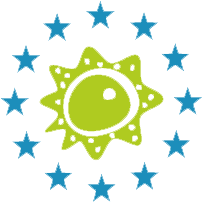The expanding role of mobile laboratories in global health crises
This session will explore mobile laboratories supporting global diagnostic challenges in disasters, crises, and disease outbreaks. We'll discuss four initiatives across various climates and continents: Europe's MOBILISE lab as a One Health sustainable solution, Canada’s extreme climate conditions specialised lab, East Africa's modular labs for cross-border epidemics, and MSF's outbreak lab designed for disaster and crisis situations. We'll also examine their national integration and future prospects in this evolving field.
Mobile laboratories are being increasingly utilised to support diverse diagnostic challenges globally, from disaster and crisis situations to disease surveillance and rapid outbreak response. Here, we discuss four very different mobile laboratory initiatives, operating in different continents, climate zones and performing to meet varying diagnostic needs. We discuss the different configurations of the mobile laboratories, specialised for particular geographical locations and diagnostic applications.
In Europe, the MOBILISE laboratory has been developed, as a One Health “Green” solution, providing sustainable capacity to diagnose Risk group 4 pathogens in remote locations across the European continent. Embedded within Canada’s Microbiological Emergency Response, is a mobile laboratory highly specialised to operate in extreme climate conditions, such as the Arctic. In East Africa, we will discuss the application of modular mobile laboratories (Type II under the WHO classification system) utilised in the East African Community (EAC) mobile laboratory network to respond to Risk group 3 and 4 epidemic prone disease outbreaks of cross border potential.
Finally, we will describe a mobile outbreak laboratory within Medecins Sans Frontieres (MSF), designed to meet the diagnostic needs during disaster and crisis situations. We will discuss the similarities and contrasts between the various initiatives, as well as well as their perspectives on the future outlook for mobile laboratories in this rapidly evolving field. Finally, the symposium will address how to institutionalize and sustain mobile laboratories into national systems for disease surveillance, outbreak response or other health care services.
Date and time
20 November 15.45-16.45
Moderator
Florian Gehre
Dr Florian Gehre is heading the Bernhard-Nocht-Institute for Tropical Medicine’s (BNITM) department for One Health Disease Control and has a long interest in infectious disease epidemiology in Africa. Between 2011-2017, he coordinated TB studies in West Africa and since 2018 he specialized on the development of mobile laboratories for risk group 4 pathogens and AMR surveillance in East Africa and Europe. Together with the East African Community (EAC) and the Partner States’ National Public Health Laboratories (Tanzania, Kenya, Burundi, Rwanda, Uganda, South Sudan) he implemented an East African mobile laboratory network, that was instrumental in many regional outbreak responses against SARS-CoV-2, Ebola Virus disease, and Marburg Virus Disease, amongst others. In Europe, he is the coordinator of a consortium of nine partners (National Agencies/MoH, first responders and SMEs) with the goal to develop a novel and green, One Health Mobile laboratory (MOBILISE) for the rapid detection of (re)-emerging arboviruses.
Speakers
Muna Affara
Dr Muna Affara is a molecular biologist, with extensive experience in infectious diseases and public health in Africa. Between 2010 and 2018, she worked at the MRC Unit, The Gambia, leading the Malaria laboratory group and the laboratory services department. Currently she is co-leading the One Health Disease Control group at the Bernhard-Nocht Institute for Tropical Medicine, where she is coordinating mobile laboratory projects in both East Africa, Europe and Asia. Seconded to the East African Community (EAC) headquarters in Arusha, Tanzania since 2018, she has to date established a network of 9 modular laboratories within the National Public Health Laboratories (NPHLs) of the EAC Partner States, for diagnosis of epidemic prone diseases (Risk Group 4) of cross border potential. She is working on the implementation of further mobile laboratories for Anti-microbial Resistance and genomic surveillance in the East African region, coupled with continuous training programs for capacity building within the NPHLs. As part of the MOBILISE project consortium, she has established a Green mobile laboratory for Risk Group 4 pathogen diagnosis in Europe and is also leading the implementation to establish mobile laboratory capacity within Nepal’s NPHL.
Kym Antonation
Kym Antonation, MPH, is the Chief of the Bioforensic Assay Development and Diagnostics (BADD) section at the National Microbiology Laboratory (NML), Public Health Agency of Canada. In this role, she manages the operations of the Bioforensic and Special Bacteriology laboratories. She has >20 years experience, focusing primarily on molecular diagnostics for the detection and identification of high consequence bacteria, such as Bacillus anthracis, Francisella tularensis, Mycobacterium tuberculosis and others, using a range of methods to adapt and implement high-confidence assays for use within a containment lab or in the field under the ISO17025 standard. As part of Canada's Microbiological Emergency Response Team, she has considerable involvement in the field of CBRNE response and laboratory mobilization. She provides subject matter expertise for the biological component of the National CBRNE team and actively manages the MERT laboratory team on deployment, overseeing diagnostic testing in the field. Internationally, she has contributed to GPP initiatives such as containment lab operations for the Caribbean Public Health Agency and international first responder training for Jordanian military. She has written and collaborated on national lab standards and testing guidelines. Her experience has resulted in being called on as Expert Witness in the field of Diagnostic Bacteriology, for which she qualified for and served in federal court.
Laurence Flevaud
Laurence Flevaud is a biologist by training, and joined Medecins Sans Frontieres in the late 90s. After 10 years on the field as laboratory manager or in coordination positions with MSF, she joined the medical department in Barcelona as a diagnostic advisor. Her role is mainly to identify the most suitable biological diagnostic tools adapted for the contexts in which MSF is working. She has significant experience in outbreak diagnostic management and since 2018 has been working in a project for mobile outbreak laboratories, which aims to bring diagnostic capacities closer to the population for outbreak investigation.
